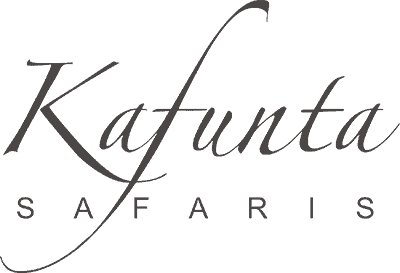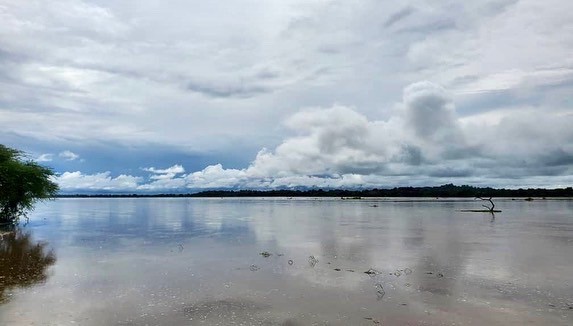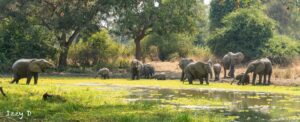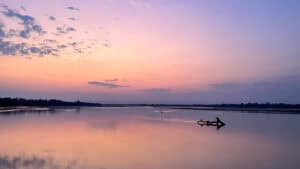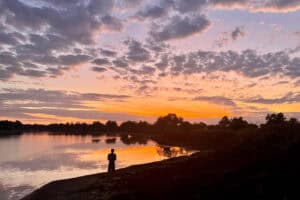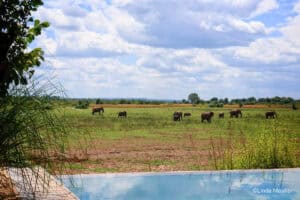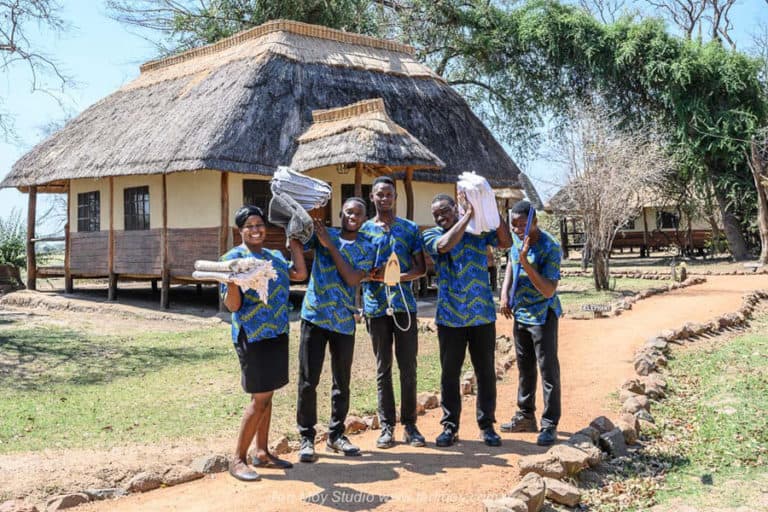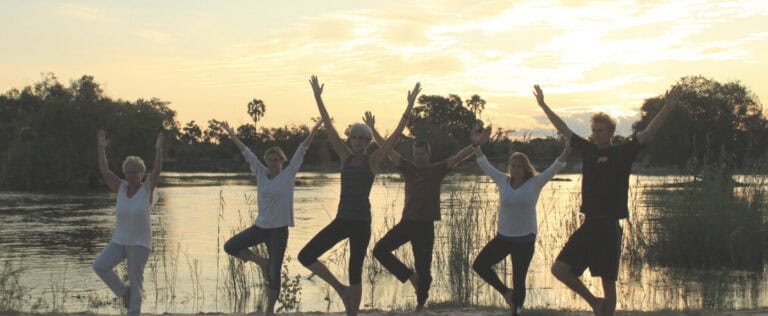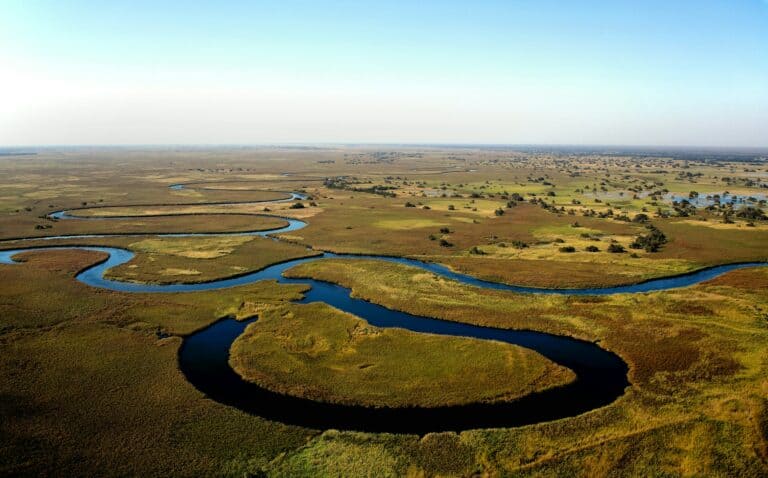Traveling to Zambia is an amazing experience, filled with rich cultural and natural wonders. To help you make the most of your trip, we’ve compiled the best guide with 18 travel tips and advice to help you prepare your journey.
Our planning guide covers the following items:
Visa & Passports
Getting Around
Currency & Payments
Language
Blend in
Safety
Solo Female Travel
Limited Mobility
Traveling with Children
What to Pack
Phone & Communication
Electricity
Gratuities
Food & Beverage
Activities
Seasons
Inclusions & Exclusions
Health & Insurance
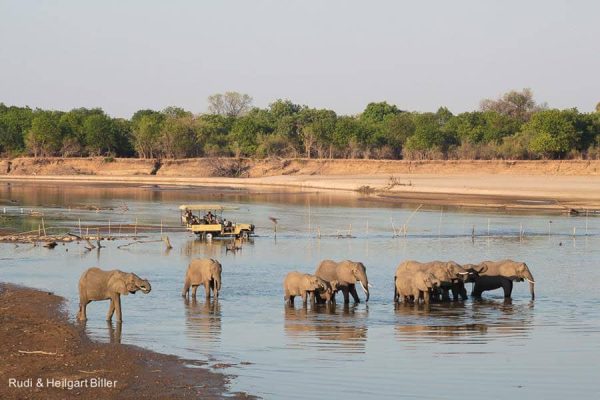
Visa & Passport
Some travellers need a visa to enter the country, and some don’t. It depends on your country of origin/citizenship and purpose of your trip.
Zambia modified its visa and entry requirement as recently as November 2022, so it is important to check these ahead of time on the Zambian Immigration website or ask your nearest Zambian embassy/consulate.
Make sure your passport is valid for at least 6 months from date of arrival and have a minimum of 2 blank pages for stamps.

Are you planning a safari? Download our in depth Zambian Safari planning guide!
Getting Around

Zambia has a well-developed road network but it is more likely that you will move around the country using domestic flights connecting cities and national parks.
– Arriving in Zambia: you will probably fly to Lusaka (LUN) or Livingstone (LVI). You will first go through immigration, then collect your luggage before exiting the arrival hall. If you remain in that city, you will have access to taxis or a representative of your hotel will meet you. Alternatively, if you connect to a domestic flight – let’s say to Mfuwe – then you will walk to the domestic terminal/counter (change of terminal at Lusaka airport) and check-in with your domestic airline. Airports are small in Zambia and there are always many people around to help you find your way. Attention always collect your luggage first, even if you are “checked-through” by your initial airline, as you have to physically re-check them domestically.
– You can ask your travel agent or the lodge you are going to to book a Meet & Greet service. You will then have assistance after collecting your luggage, to proceed to the connecting hall or direct you to a taxi, or even take you straight to your lodging. This has a small cost but can definitely bring you peace of mind, especially after a long international overnight flight.
– If you take a taxi, we recommend you negotiate the price before boarding, as there are no meters. Taxi drivers are very accommodating and friendly.
– Most safari lodges in Zambia will collect you when arriving at a remote domestic airport (such as Livingstone, Royal, Mfuwe etc) but this must be pre-arranged and can have an extra cost.
– If you go from one lodge to another within the same national park, they usually include this service free of charge and they will coordinate the transfer between themselves. Always check what is and isn’t included in your package. Some transfers may take several hours.
CURRENCY & PAYMENTS
Our currency is the Zambian Kwacha (ZMW), it is subdivided in Ngwee (1 Kwacha = 100 Ngwee). It is only available in Zambia. The Kwacha comes in banknotes of 2, 5, 10, 20, 50 and 100 Kwacha. Coins of 5, 10, 50 Ngwee and 1 kwacha are also in circulation.
Kwachas can be obtained once you are in Zambia, by withdrawing at an ATM machine (available at major airports) or using a Bureau de change.
The exchange rate is volatile but count on 1 USD being between 15 and 20 Kwacha.
USD are accepted by almost all tourism providers, so it is recommended to bring dollar notes (not coins). The notes must be recent and in small denominations ($1, $5, $10 and $20) as you will rarely get change in USD (Zambian’s favorite response is “I have no change”). Some venues may also accept GBP and Euros.
Most lodges, restaurants and shops will accept debit and credit cards (Visa and Mastercard) with a chip and pin number. The actual charge is likely to be in ZMW, but some have USD accounts as well.
Leave your travelers’ cheques and American Express card home… they are rarely accepted.
language
There are 73 languages and dialects in Zambia but luckily English is an official language and spoken by most Zambian unless you visit extremely remote and rural areas, away from tourist hubs. The major local languages are Nyanja and Bemba.
Sometimes you will be confused with the local’s pronunciation. For example, the letters L and R are pronounced the same! So when your waiter announces “lice” he/she probably means “rice”! And when your guide says “Let’s hit the load” he/she means the “road”!
In South Luangwa, the common language is Nyanja. You can learn these few words to start with.
Hello
Thank you!
Thank you very much!
How are you?
I’m good thank you
Bwanji
Zikomo!
Zikomo Kwambiri!
Muli Bwanji?
Bwino Zikomo
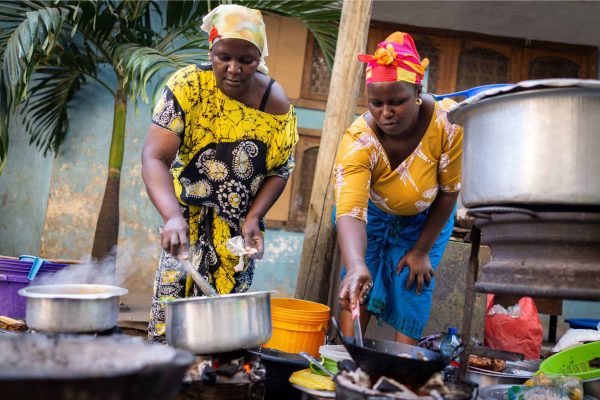
BE SENSIBLE TO LOCAL CULTURE
A few recommendations in order to blend in:
– Greetings – Zambians are very sensitive to a polite greeting and a thorough introduction. When approaching someone to ask for help or service, make sure to greet them first (Hello, how are you?) rather than rushing in.
– Although tolerated, it’s best to avoid wearing short shorts or skirts and revealing clothing. The culture is quite conservative, especially in villages and rural areas.
– It’s very common for friends of a same-sex to hold hands. However, couples are rarely showing affectionate signs (such as kissing in public).
– Same-sex relationships/marriages are officially illegal in Zambia although it’s not a problem for guests of safari lodges. But it’s best to avoid public displays of affection.
– Some Zambians will avoid eye contact as a sign of respect and seniority, especially in rural areas.
– Photographing people: it’s best, and more polite, to ask first.
Safety
Zambia is a very peaceful country with a very gentle and kind population. However as in most places, some areas may be best avoided (in big towns) and it’s always best not to wander alone in the evening. In rural areas, it’s best to avoid roads at night because they are dangerous in terms of traffic. Tourists are rarely targeted by pickpockets but it’s common sense to avoid temptation and keep a respectful and low profile.
Don’t leave your valuables laying around unnecessarily, and make sure to use the safe or the lock box in your room. This is also true in the most remote places.
SOLO FEMALE TRAVELLER
As explained above in the “Safety” paragraph, Zambia is a very friendly country and it’s not a problem at all to travel as a solo female traveler. As with anywhere you would want to avoid walking around in the dark or find yourself in isolated areas of towns. Pay attention to local etiquette, and act and dress sensibly.
But with a planned itinerary, you would rarely be left on your own (for example lodges will send a dedicated driver to meet you at the airstrip) and you are also likely to meet other solo travelers at lodges and camps. Avoid hitchhiking if you’re backpacking.
TRAVELLERS WITH LIMITED MOBILITY
The adventurous nature of a safari, the remote locations and complexity of logistics may limit the availability and accessibility of infrastructures which are fully equipped for those with mobility issues, it all depends on the traveler’s abilities and readiness for a bit of a rocky experience. But it is worth inquiring with your travel agent and the lodges/camps you are contemplating.
TRAVELLING WITH CHILDREN

Over the past few years, multi-generational travel has greatly increased in Zambia and safari operators are very much aware of this trend. Many have developed family-friendly accommodations and activity programs. Nevertheless, don’t assume children of all ages are accepted everywhere.
Minimum age requirements are frequent (for insurance, activities or simply safety). Zambian parks are not fenced, and lodges and camps will usually see wildlife roam through freely, which can be dangerous for young children. Always inquire with your travel agent or with the relevant lodges to know their children’s policies, discounts, and the facilities on offer.
Safari activities are not always suitable for young children as they may lose interest fairly quickly (or be put off by a violent attack of lions towards their prey) or activities may involve an element of danger (bush walks, canoeing) so keep this in mind when planning your holidays.
Be mindful of entry requirements and the documents which may be essential to travel with young children.
WHAT TO PACK
– Prefer a soft bag, especially if taking domestic flights (this may even be compulsory for some small aircraft). It’s also easier for lodge staff to carry luggage around wobbly paths.
– Pack light! Most lodges offer complimentary laundry so only a few changes of clothes are required, and it’s very rare for lodges to have a formal dress code. So no need to pack your 3-piece suit.
– Attention we have winters too, so depending on the season, warmer gear is necessary.
– Read our detailed our blog about what to pack for Zambia and download our printable packing list.
Pack for a Purpose!
Try to keep a little space in your suitcase to bring school and sport supplies which can be handed over to your lodges/camps. Check the website of the NGO Pack for a Purpose for updated lists of suitable supplies to bring.
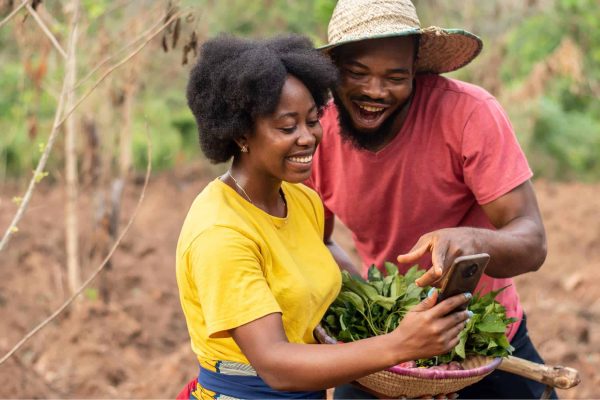
PHONE & COMMUNICATION
The country code for Zambia is +260. Most people communicate via mobile phones (“cells”) and coverage is widespread, except in remote wilderness where it can be non-existent.
You can purchase a local SIM card on arrival to have access to affordable mobile data and calls (registration required). Buy data for either phone or/and internet. It’s rather inexpensive. This can be done a major airports in the country, but it will take some time.
If you plan to use your phone from home, check with your carrier for any roaming fees or requirements to avoid any surprises when you get your bill later on!
Wifi at lodges is becoming the norm however the service can be unreliable and very limited to non-existent in remote camps.
ELECTRICITY
Zambia has a 220V power supply and uses Type G (UK style with three square pins) plugs. It’s always a good idea to bring a universal plug adapter with you.

Lodges which are located near larger villages will usually have access to the town’s electricity grid. Not to say that power outages or load-shedding are uncommon. In this case, they probably offer alternative source of power such as generators.
Some remote properties may have solar power which will be sufficient for lights and charging batteries but not for the use of hair dryers for example. And finally, some rustic bush camps will not offer elaborate power sources so you should expect to go without electricity for a few days.
GRATUITY
In Zambia, tipping is at your discretion, and very much appreciated – but it is not mandatory. Dollars are worth a lot of money for Zambians, so keep your gratuities sensible. A couple of dollars to a bellman or a waiter at a public restaurant will do.
Rule of Thumb on Safari:
– General staff: $5 to $10 per guest per day – usually placed in a tip box at the front desk at the end of your stay. These tips will be shared equally between the main category of staff.
– Safari Guides: $5 to $10 per guide per day – usually handed directly to them at the end of your stay.
– Spotters, scouts: this staff is usually not part of the “tip box” because they are trainees or because they are not employees of the lodge as such so a few dollars handed directly to them at the end of your stay will be appreciated.
– Managers: they are not typically part of the “tip box” either. They don’t usually expect tips, it’s, therefore, a very nice surprise for them when they are handed one.
Tipping is usually done at the end of the stay (not after each service/activity).
Any cash currency will do (USD, Euros, GBP, ZMW). Don’t expect to be able to leave the tip on your credit card when settling any extras.
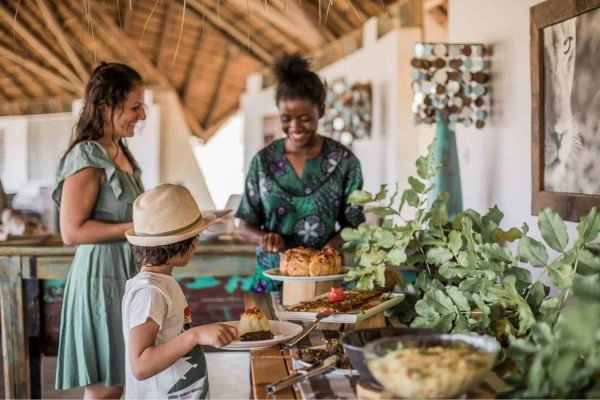
FOOD & BEVERAGE
Food in Zambia is diverse and influenced by the country’s many cultures and traditions. If you are on a planned safari itinerary, it is likely that you will be copiously fed at all your stops. If you are on safari in very remote areas, it’s amazing to see the diverse and delicious offerings the camps come up with despite very basic kitchens.
Check the inclusions and exclusions of your package. Often meals are included in the safari package (while you are at the property, you may still have a meal or two in transit between flights or city layovers). Drinks are either included (but premium brands are most likely extras) or excluded and billed at the lodge.
At a safari lodge, this would be your typical meal plan: early continental breakfast (from a quick bite to full breakfast), early lunch (buffet is typical), afternoon tea (sweet, savory), and dinner (usually plated, some have choices some are set menus). Also snacks on activities (morning tea break, afternoon sundowners). These meals are often hosted by safari guides or managers in a communal setup, but private dining can also be the norm. Usually, the lodges work on a set menu, not an à la carte offering.
The cuisine style varies greatly but it is usually international with an Indian and South African influence. Zambia’s staple dishes are rarely on the menu as they are not usually the most appetizing, but you may be interested in tasting some local cuisine. Popular dishes include Nshima (a type of maize porridge reminiscent of polenta), relishes (stews of tomatoes and onions), and grilled or fried meat or fish.
If you have serious food allergies, make sure to let your travel agent and ultimately the lodge, know well in advance as menus are often set and supplies may be limited or difficult to obtain on a last-minute basis.
Typical drinks available at lodges are the Mosi or Castle beers (lager), south African wines, and an array of liquors such as gin, brandy, Amarula, and whisky. Soft drinks such as Coke and Sprite are readily available although supplies may be inconsistent. Coffee and tea are standard offerings and often free of charge (in safari lodges).
Drinking water is also available, and more and more lodges prefer to refill water bottles (at Kafunta we offer you a refillable bottle at arrival) rather than using individual plastic bottles.
Smoking is tolerated in most lodges and camps but cigarettes are not readily available for purchase unless you go to a local market.
ACTIVITIES
A safari holiday is usually mostly dedicated to the observation of wild animals. It is the main focus of the holiday and lodges and camps are expected to provide this through a series of activities on offer. The main activities are game drives, all day drives and bush walks.
Areas near rivers will usually offer canoe and boat trips, as well as fishing. Not all rivers however are suitable for these (for example there are no water-based safaris on the Luangwa River except maybe in the rainy season).
Some lodges may offer specific activities such as bike rides or horseback riding and larger facilities may offer a pool, a spa, or a gym. Those located near villages may also suggest some cultural visits to the community or conservation projects or artisan tours.
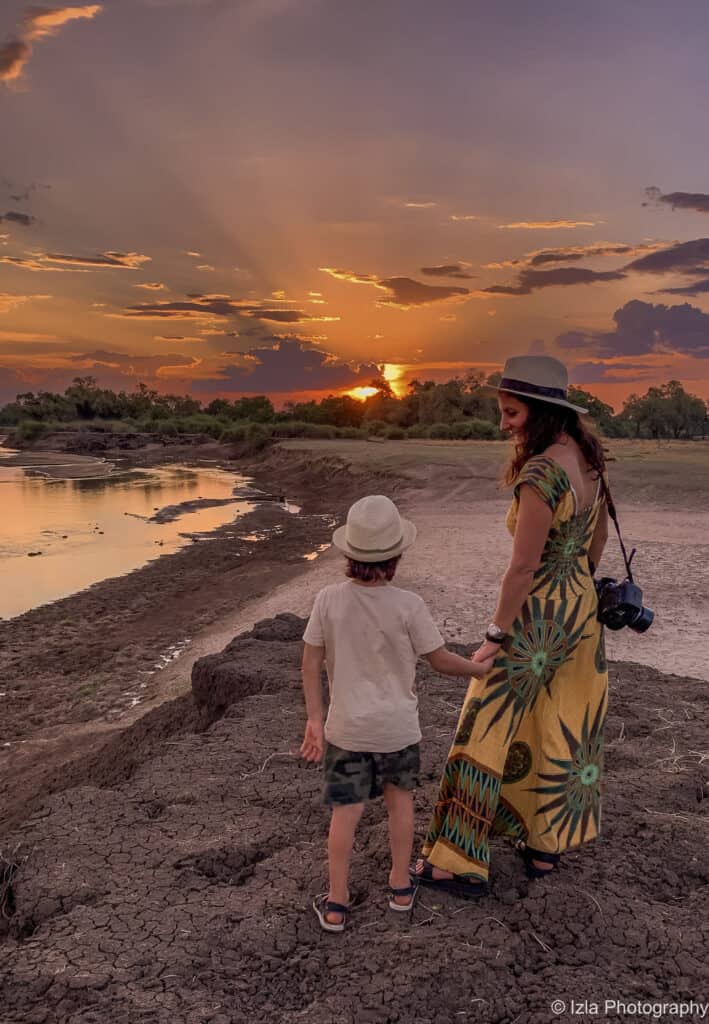
The best time to travel to Zambia depends on what you want to see and do during your trip. Being in the tropics, Zambia is spoiled with gorgeous sunlight and usually mild to hot temperatures. But if you come in January you’re most likely to be facing severe rains.
We tend to split the year into 2 periods: the dry (May to Oct) and wet (Nov to Apr) seasons. But it would be more accurate to divide the Zambian year into roughly 3 climate periods:
December to April = warm and (very) wet
May to August = dry and cool
September to November = dry and hot
These periods will also determine the tourism “high”, “shoulder” and “low” seasons if applicable.
Read our detailed blog about the best time to travel to Zambia and the impact of seasons on the weather, accessibility and game viewing.
INCLUSIONS & EXCLUSIONS
You should plan your safari well in advance and understand what you are booking. Is it an all-inclusive safari or on the opposite, is it on a room only basis?
Check what is included at each property as this can vary greatly. Inquire about transfers between airstrips and lodges/camps, activities, drinks (“standard” and “premium”), park fees and various levies, and laundry.
Budget accommodations rarely offer the same standards and comprehensive services than luxury lodges. Beware of “cheap” offers. Zambia is also a big country and if you visit multiple parks, expensive domestic flights or lengthy road transfers will be required which will impact the overall cost and duration of the trip.
If you are unfamiliar with the destination it is a good idea to book through an African specialist – a travel agent or tour operator who has been to the properties or is based in the country and has first-hand knowledge of travel conditions and offers. You will find here a list of the agents we are happy to recommend. Alternatively, you’re also in good hands with us as we have over 20 years of experience in helping our guests plan their highly anticipated visits.
Health & Insurance
Zambia has a good healthcare system, but it’s still important to take precautions to stay healthy while traveling, such as practicing good hygiene, getting vaccinated, and drinking safe water.
Spend time preparing your trip well in advance and check with your local travel

clinic for necessary (or recommended) vaccination and prevention. Ensure your immunizations are up to date. Most parks in Zambia will be subject to malaria, and proper prevention medication is strongly recommended.
Travel with a comprehensive medical travel insurance inclusive of a medical evacuation (remember most of the lodges/camps are in very remote areas!). These covers are not very expensive and well worth the investment as minor incidents or more serious accidents are always a possibility. Covers may also include lost/stolen items and trip cancellation.
Pack your essential medicine and bring your own small first-aid. If you wear contact-lenses, double up on the eye drops as areas can be windy and dusty.
Depending on the lodges and their locations, a doctor-program may be available at an extra charge.
Here again we would recommend booking your vacation through a reliable tour operator/travel agent with up-to-date local knowledge and comprehensive traveler protection scheme. You will also have one point of contact if anything goes array while you travel.
CONCLUSION
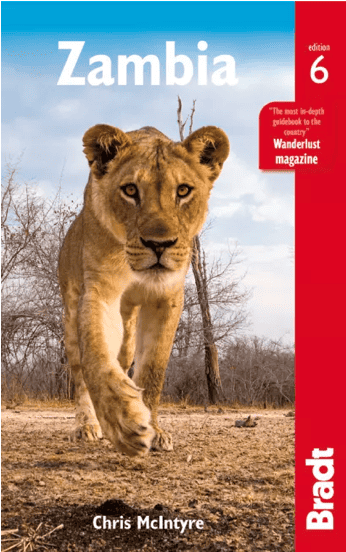
By keeping these travel tips in mind, you will have a safe and enjoyable trip to Zambia.
We also recommend purchasing a specialized travel guidebook to Zambia with a comprehensive section on travel considerations or ask your travel agent for this while you are preparing your safari as there are many subjects to cover and prepare for.
Our go-to source is always the Bradt Travel Guide Zambia for its extensive and meticulous information on understanding the country and on planning and preparing for your journey.
For more on the subject, we invite you to also read our blog “9 Tips From Our Safari Guides” or visit our “Latest News” page for informative blogs on what to see in Zambia, where to stay and lots more.
And many of our recent blogs talk about what to see in Zambia, where to stay and what to do.
Source: Bradt Guide Zambia by Chris McIntyre.
